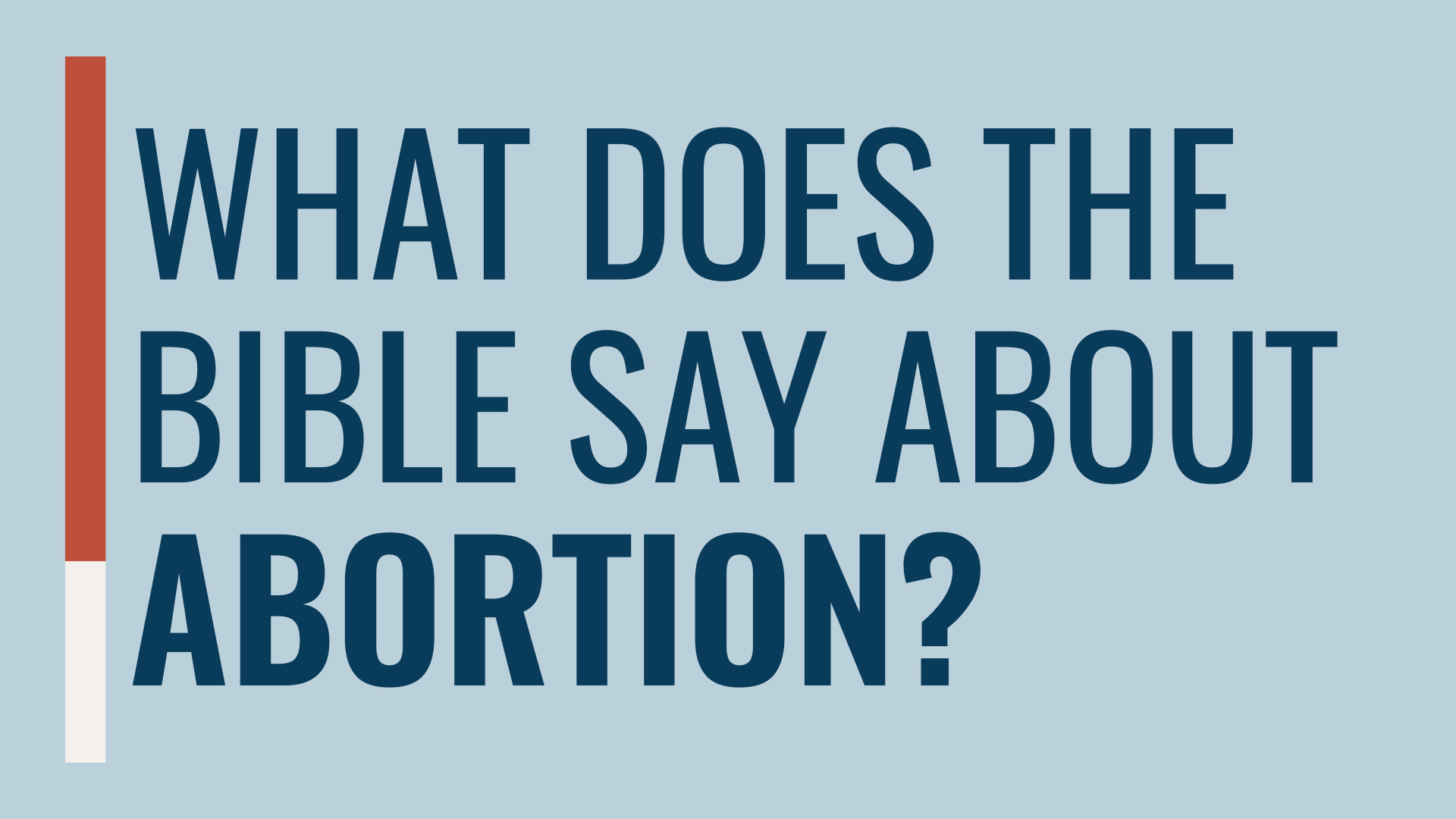There are few topics more divisive than abortion. Depending on who you talk to, it is either something to be celebrated or mourned; either an essential “right” or the greatest “wrong” of our lifetimes. And for those who have participated in an abortion, it can be a source of lasting pain and regret—or something for them to “shout” proudly about. So which side is correct?
For Christians who follow a biblical worldview, the issue is clear.
- Unborn children are living human beings. This should not be a controversial statement and is not even solely a biblical one. Science is clear that, at very moment of conception, a new human comes into being with its own unique DNA different than either of its parents. This confirms what the Bible says about personhood, discussing the lives of people before they are born (Jeremiah 1:5; Luke 1:41-44; Galatians 1:15) and setting punishments for causing harm to the unborn (Exodus 21:22-25). “My body, my choice” should be an argument against abortion; the child has his or her own body, and would certainly choose to live (Ephesians 5:29).
- All people are created by God with great worth. We all bear the image of God (Genesis 1:27) and are created and known intimately by Him (Luke 12:6-7) even before we are born (Psalm 139:13-16). This is true regardless of our size or appearance (1 Samuel 16:7); our strength or weakness (2 Corinthians 12:9); or our abilities or disabilities (Exodus 4:11).
- Killing innocent people is wrong. That is perhaps the most recognizable of the Ten Commandments (Exodus 20:13), and is especially emphasized when the victim is innocent (Exodus 23:7; Deuteronomy 27:25; Proverbs 6:16-19). Unborn children are the most vulnerable of all people. We should actively speak up for (Proverbs 31:8-9) and protect (Proverbs 24:11-12) the unborn.
- Children are a blessing, not a curse. For many, the decision to have an abortion is made when the mother believes having her baby would come at too great a cost. Going through with the pregnancy may appear burdensome, frightening, or seemingly impossible. However, the Bible states that children are a blessing (Psalm 127:3-5), a source of joy (Psalm 113:9), and a gift from God (Genesis 33:5).
- Rape is horrific and demands justice, but killing someone conceived in rape does not right that wrong. People often bring up cases of rape or incest as an argument for why abortion should be allowed. It’s important to note that such cases are the exception; only 1% of abortions are because of rape, and less than 0.5% are because of incest. Rape is a terrible sin that causes incredible psychological, emotional, and physical pain, and rapists should be punished (Deuteronomy 22:25-27). As incredibly hard as the situation would be for the mother, a child conceived in rape should not pay the price for the actions of the rapist. It is not fair or just for children to be put to death for the sins of their fathers (Deuteronomy 24:16).
- People always have the “right to choose,” but you don’t get to choose the consequences. Except in cases of rape and incest, women and men freely choose whether or not they have sex. When you are sexually active, that choice can result in pregnancy. Even without abortion, women (and men) still have full freedom of choice and control over their own bodies; they can choose whether or not to do the one thing that results in conception. Abortion is less about having a choice and more about trying to escape the reality of a choice you’ve already made. Although we always have freedom of choice, those choices have consequences (Deuteronomy 30:19; Proverbs 14:12; 1 Corinthians 6:12-20; Galatians 6:7-8; Hebrews 12:11).
- All laws tell us what we can or can’t do with our bodies. That’s really the point of laws; they govern what we can legally do. You cannot legally use your body to assault someone (Exodus 21:18-19), steal their possessions (Exodus 20:15), drive while intoxicated (Ephesians 5:18), lie under oath (Exodus 23:1), or a whole host of other actions. To suggest that our nation’s laws can’t or shouldn’t tell people what they can do with their bodies is to completely ignore the purpose of all laws.
- Forgiveness is available in Christ. If you have had an abortion in the past, this is not meant to serve as a condemnation (Romans 8:1). We have all sinned (Romans 3:23), and in that respect no one is better than anyone else (Romans 3:9-12). God still loves you (Romans 5:8). We can all confess, be forgiven, and be healed (1 John 1:9; James 5:16).
When it comes to voting, we cannot biblically support or make an allowance for abortion. But we can and should support those who choose life, and help people find healing from any past decisions they’ve made. If abortion is part of your story, you are loved deeply and there is hope and healing for you. To learn more, check out The Life Initiative at Watermark and visit re:generation for stories of life transformation.
